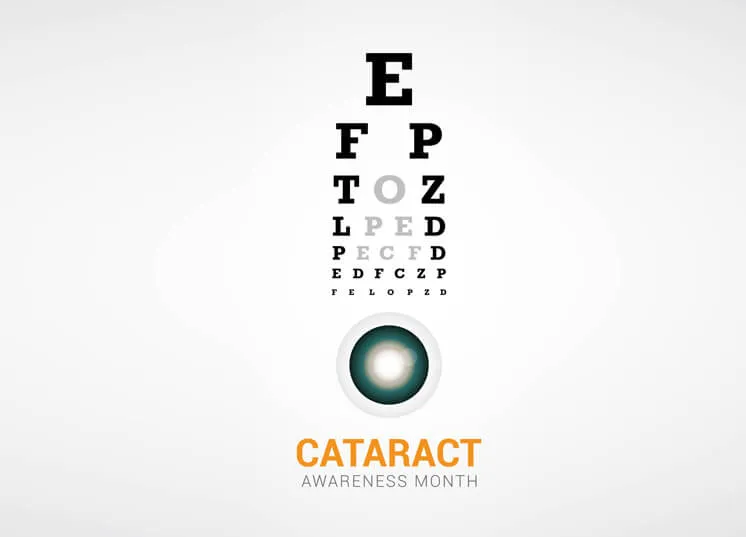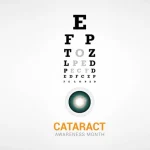Robotic eye surgery for cataract is an advanced, technology-assisted procedure that enhances precision and improves surgical outcomes. This technique integrates robotics with laser technology to aid ophthalmologists in cataract removal with greater accuracy. By reducing manual intervention, the procedure minimizes the risks associated with human error, ensuring better alignment of intraocular lenses (IOLs) and enhanced patient safety.
Robotic eye surgery for cataract has gained popularity due to its minimally invasive nature and ability to deliver highly predictable results. Unlike traditional manual surgery, this method provides a high level of customization, allowing surgeons to tailor the procedure to each patient’s specific needs.
What Is Robotic Cataract Surgery?
Cataract robotic surgery is a laser-assisted procedure that automates critical steps in the cataract removal process. Unlike conventional manual surgery, this method employs a femtosecond laser to create incisions, fragment the cataract, and prepare the eye for an IOL implant. The technology allows precise customization according to the patient’s eye structure, enhancing overall surgical accuracy.
What is robotic cataract surgery, and how does it differ from traditional techniques? Robotic cataract surgery utilizes computer-guided laser technology to ensure enhanced precision in every step, from incision-making to lens placement. This technology assists surgeons in achieving a higher degree of accuracy, leading to improved visual outcomes.
How Robotic Surgery for Cataract Works
Step-by-Step Process
- Pre-Surgical Mapping: A high-resolution imaging system generates a detailed 3D map of the eye, aiding the surgeon in planning the procedure with precision.
- Corneal Incisions: The robotic system makes precise incisions in the cornea, reducing the risk of irregular cuts.
- Cataract Fragmentation: A femtosecond laser softens and breaks the cataract into small, manageable pieces, making extraction easier.
- IOL Placement: The robotic system aids in inserting the artificial lens with perfect alignment, improving post-operative visual outcomes.
- Wound Sealing: The micro-incisions made are usually self-sealing, reducing the need for stitches and promoting faster healing.
Robotic surgery for cataract ensures a high degree of accuracy, reducing complications and promoting a smoother recovery.
Read more about other Types of Cataract Treatment.
Benefits of Robotic Eye Surgery for Cataract
- Enhanced Precision: Laser-guided incisions ensure accurate cataract removal.
- Minimized Tissue Damage: The robotic system optimizes incision placement, reducing trauma to surrounding tissues.
- Improved Safety: Advanced imaging reduces surgical errors, enhancing patient safety.
- Shorter Recovery Period: Patients experience quicker healing with reduced post-operative discomfort.
- Customized Treatment: Tailored adjustments improve overall vision correction results.
Patients opting for robotic eye surgery for cataract often report improved visual outcomes compared to traditional methods. The integration of computer-assisted technology allows for a seamless experience, reducing the risks of complications associated with manual cataract surgery.
Who Can Undergo Robotic Eye Surgery for Cataract?
Individuals suitable for robotic eye surgery for cataract include those who:
- Have cataracts that significantly affect their vision.
- Prefer a bladeless, minimally invasive procedure.
- Do not have other major eye conditions like severe glaucoma.
- Are seeking customized treatment with greater precision and safety.
Robotic eye surgery for cataract may not be suitable for individuals with advanced ocular diseases or specific corneal conditions that could interfere with the procedure. Consulting an ophthalmologist is essential to determine eligibility.
Comparing Robotic and Traditional Cataract Surgery
| Feature | Robotic Cataract Surgery | Traditional Cataract Surgery |
| Technology | Femtosecond laser, phacoemulsification system | Metallic blades, phacoemulsification system |
| Precision | High | Moderate |
| Incisions | Automated | Surgeon-controlled |
| Recovery | Faster | Slower |
| Suitability | Customizable | Generalized |
Cataract robotic surgery stands out for its ability to reduce variability in surgical outcomes. The automation in this procedure ensures greater consistency compared to traditional manual surgery.
Robotic Eye Surgery Cost and Factors Affecting It
The cost of robotic eye surgery for cataract depends on various factors, including:
- Hospital or surgical center charges – High-tech facilities may charge more.
- Type of IOL implanted – Premium lenses, such as multifocal or toric lenses, increase the cost.
- Surgeon’s expertise – Highly experienced surgeons may charge higher fees.
- Location of the procedure – Costs may vary based on region and availability of robotic technology.
- Insurance coverage – Some insurance providers may cover robotic cataract surgery, while others may not.
Robotic eye surgery cost varies widely depending on geographic location and the specific medical institution performing the procedure.
Risks and Considerations of Cataract Robotic Surgery
While robotic cataract surgery is generally safe, potential risks include:
- Temporary visual disturbances – Patients may experience halos or glare post-surgery.
- Slight corneal swelling – Some swelling may occur but usually resolves within a few days.
- Higher cost – The advanced technology increases the overall treatment expense.
- Not suitable for all patients – Those with complex eye conditions like corneal opacities and non-dialing pupils may require manual surgical techniques.
Conclusion
Robotic eye surgery for cataract is revolutionizing ophthalmology by offering greater precision, improved patient outcomes, and a minimally invasive alternative to traditional procedures. Although the cost is higher, the benefits of enhanced safety and faster recovery make it a preferred choice for many patients. Consulting with an ophthalmologist can help determine whether robotic cataract surgery is the best option for individual eye health needs.
Enhance your vision with advanced cataract treatment today. Explore Robotic Cataract Surgery Options!
Frequently Asked Questions
The procedure typically takes 15-30 minutes per eye, but additional time is required for preparation and post-surgical monitoring.
No, the procedure is performed under local anesthesia, ensuring a painless experience for the patient. Mild discomfort may be experienced during recovery.
Most patients can return to light activities within a few days. However, strenuous activities and heavy lifting should be avoided for at least a week.
It depends on the type of IOL used. Premium lenses can reduce or eliminate the need for glasses, but some patients may still require them for certain tasks.
Coverage varies by provider. Some insurance plans cover standard cataract surgery but may require additional costs for robotic-assisted procedures and premium IOLs.





